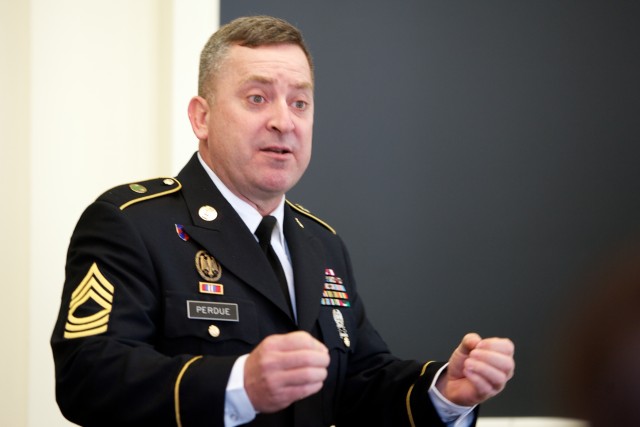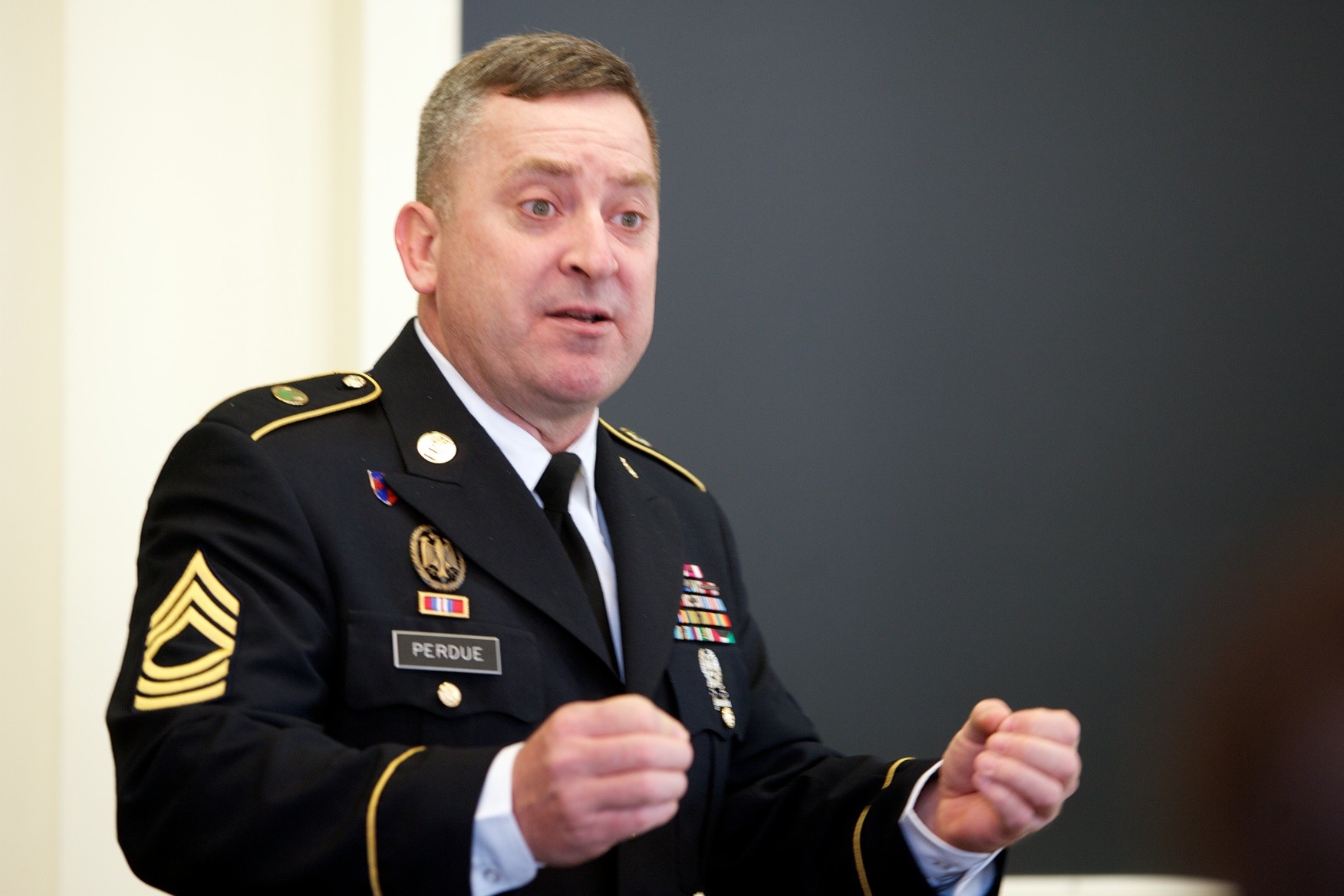LEXINGTON, Va. - Every new second lieutenant wants to immediately make his or her mark on their unit. But there's a right and a wrong way to go about it.
Just ask Cadet Jason Seifert.
A former platoon sergeant who soon will take on the role of a platoon leader, he finds that a conversational approach works best in establishing a pivotal rapport that benefits subordinate Soldiers and keeps the unit focused on mission success.
"The relationship a lieutenant has with the platoon sergeant is fundamental to ensure the platoon runs smooth," said Seifert, who attends George Mason University. "If the two of them aren't talking, it's hard to accomplish the mission and make sure all the Soldiers in the unit are taken care of."
Among the varied roundtable topics at this year's annual George C. Marshall Awards and Leadership Seminar was one spotlighting the role of the platoon leader and the non-commissioned officer. While other sessions like Middle Eastern relations and social media served as electives, attendance at the relationship discussion was mandatory for each of the 273 soon-to-be lieutenants from Cadet Command programs nationwide.
The reason: A weak bond between an inexperienced platoon leader and seasoned platoon sergeant can spell immediate and long-term doom to a unit.
"The first time you meet that platoon sergeant is key," said Maj. Jason Staraitis, who co-led one session and today serves as the executive officer for Maj. Gen. Mark McDonald, the commanding general of Cadet Command. "It sets the tone."
Teaming with Master Sgt. Daniel Perdue, the senior military instructor at Michigan State University, the two outlined situations they have had faced in their careers, talked of mistakes they had made and offered Cadets plenty of advice.
They recommended Cadets not come across as cocky or arrogant, assuming they understand how the unit functions and issuing demands. That works to damage a relationship before it begins.
Instead, they suggest that incoming second lieutenants be open-minded, spending as much time as possible taking in what enlisted leadership has to offer. After all, Staraitis and Purdue said, the service experience of those NCOs generally will overshadow the limited training of a newly-commissioned officer.
"You want to do well, and you want to do it right," Staraitis said. "At the end of the day, you need to listen.
"That's why you have one of these and two of these," he added, referencing his mouth and ears.
Long before the sessions on the NCO-officer relationship began, Cadets had heard much discussion about the value of such connections through their training back on campus.
Michelle Nicholson of Morgan State University said the Marshall seminar reinforced those lessons and the value of establishing a strong relationship from the start.
"As a new platoon leader, you need that strong foundation from a platoon sergeant to help guide you in your career and help your lower enlisted Soldiers," she said. "Having a strong relationship with your platoon sergeant is not only beneficial to your platoon in general, but your career as well."


Social Sharing